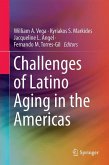In January 2006, the Dutch Association of Industry-wide Pension Funds (VB) told us about their plan to prepare a book on solidarity in collective pension systems. We were intrigued by this topic, both because of our - terest in the pension sector and because of the connection with solidarity in a cost-benefit approach. After some discussions with VB director Peter Borgdorff, we decided to start a project with leading scholars and prac- tioners, which was to result in a book. We hoped that the researchers could investigate the extent of value transfers within collective pension funds, so that quantitative indications of this institutionalized solidarity would - come publicly available. While the book was in progress, the discussion on solidarity and mandatory pension systems became very topical, and so 1 were the results of the analyses. When the book was released in Dutch , the chapter on costs differentials between pension funds and insurance companies also drew much attention. In the early months of 2007, the political and professional debates c- tinued, with increasing attention from pension experts from abroad. This made us decide to try and arrange a translated version of the book. We were happy to find Springer Verlag, and collaborate with their enthusi- tic publisher Dr. Niels Peter Thomas. We are also grateful to the Pension Science Trust (Stichting Pensioenwetenschap) for subsidizing the trans- tion by Language Lab, and to the earlier mentioned VB for their generous collaboration in getting the international edition released.








